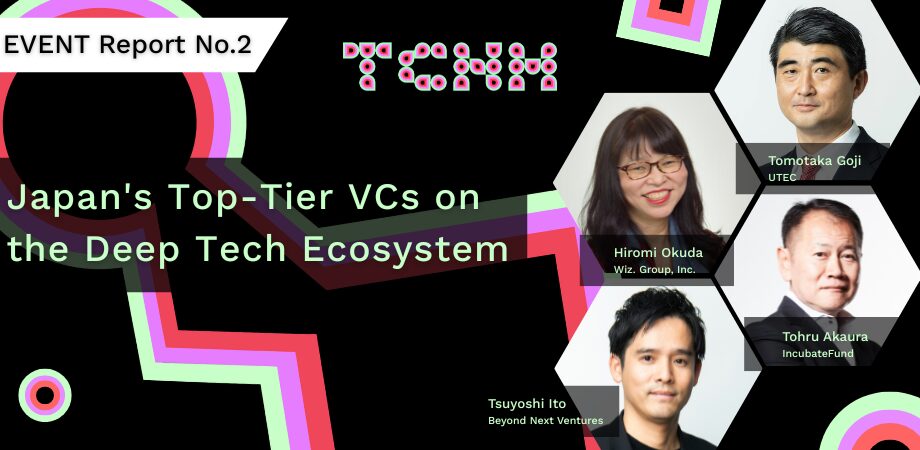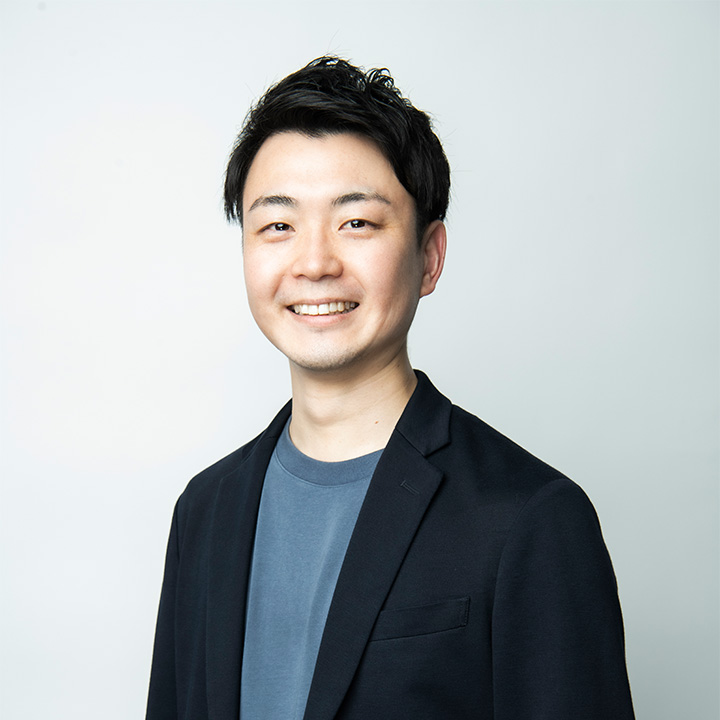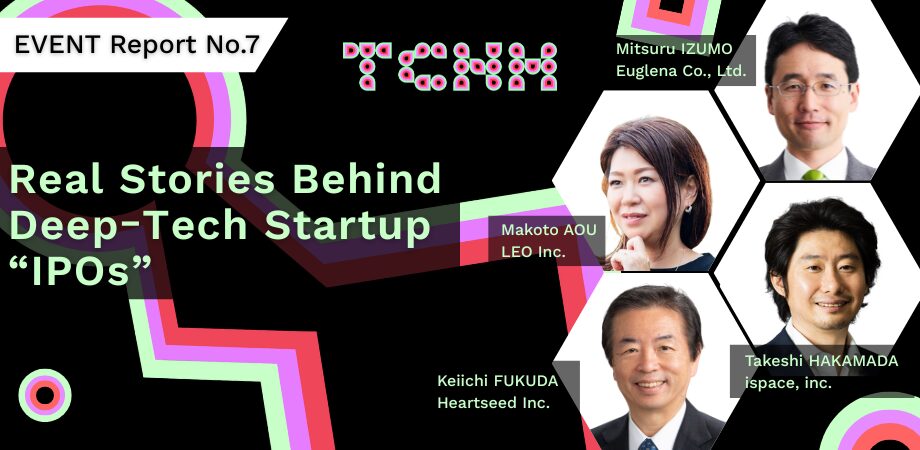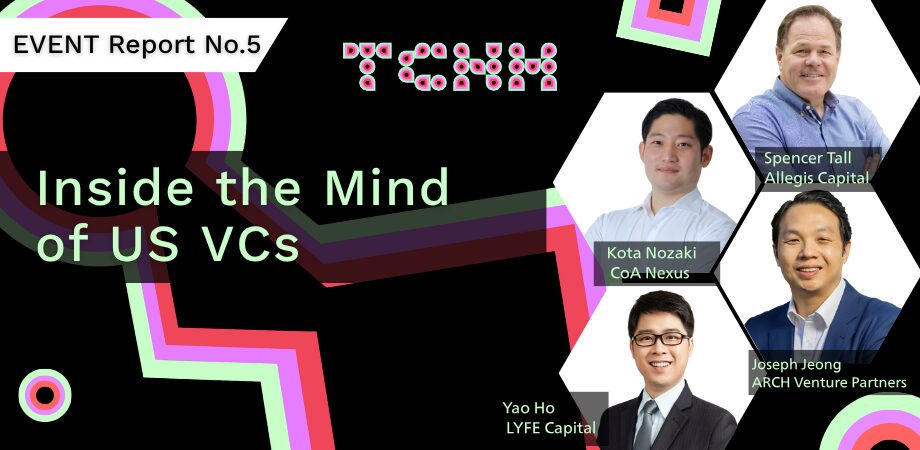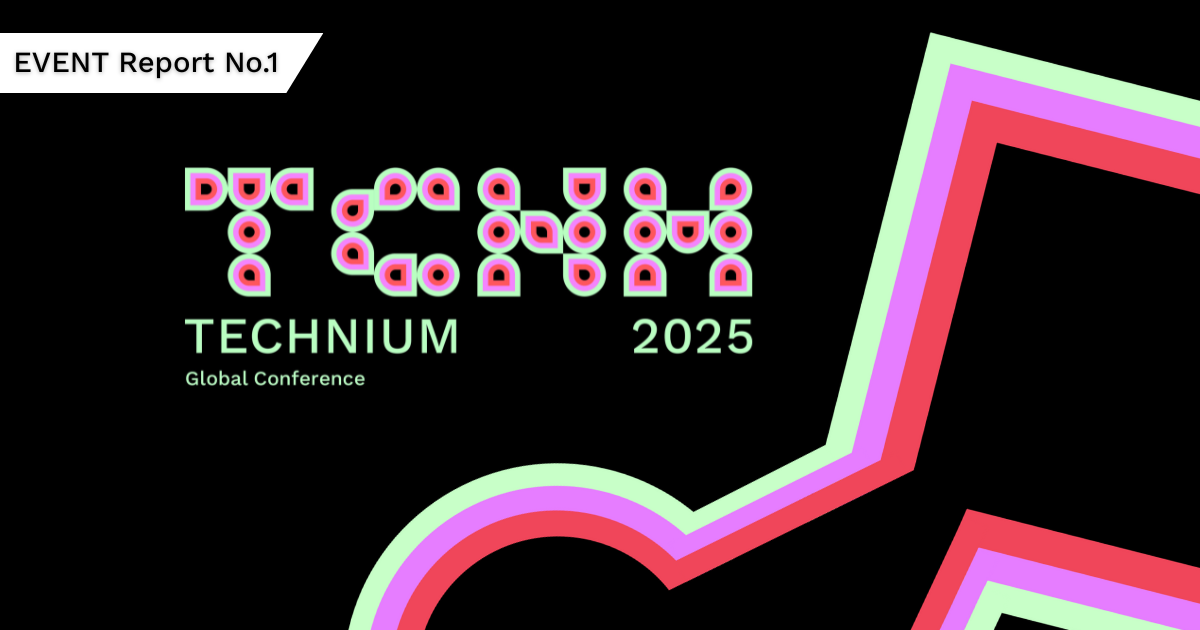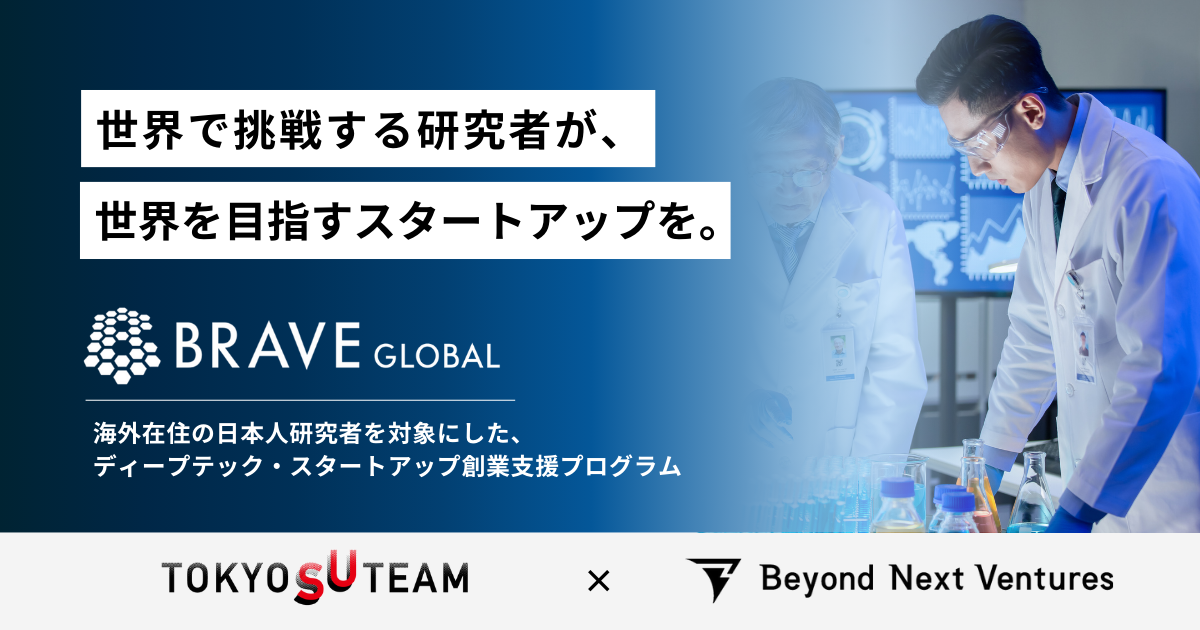TECHNIUM Global Conference, Japan’s first international conference dedicated to deep tech, was co-hosted by Beyond Next Ventures. The event brought together top players leading Japan’s deep tech startup ecosystem and featured a wide range of sessions.
The conference was held by invitation only, and it received an overwhelming response. For those who were unable to attend, we are pleased to share session reports to give a glimpse into the discussions and insights.
Event Report #2 highlights a session featuring Japan’s top-tier VCs, who shared their perspectives on the future.
Session Title: “Japan’s Top-Tier VCs on the Deep Tech Ecosystem: 20 Years of Growth and Future Challenges”
Modertaor:
Hiromi Okuda, CEO & Founder at Wiz. Group
Speakers:
Tomotaka Goji, CEO & Co-founder at The University of Tokyo Edge Capital Partners
Tohru Akaura, Representative Partner at Incubate Fund
Tsuyoshi Ito, CEO & Managing Partner at Beyond Next Ventures
“Starting a company as a researcher used to be something only eccentric people did.”
TECHNIUM Global Conference kicked off on May 7 in Tokyo. At its opening, venture capitalists that led Japan’s deep-tech industry over the past 20 years and witnessed its transition since its early days talked about the challenges so far, and issues as well as possibilities lying ahead.
The panel featured three speakers; Tomotaka Goji, Tohru Akaura and Tsuyoshi Ito, while the session was moderated by Hiromi Okuda.
The conversation traced back to the early 2000s when Goji founded UTEC in 2004, it was still extremely rare for university researchers in Japan to choose entrepreneurship.
Akaura reflected “If a company stayed in the red for too long, it couldn’t even borrow money from banks. It was an era when deep tech startups would often run out of funding halfway to commercialization and collapse.”
Still, they tried to forge a path between academia and industry.
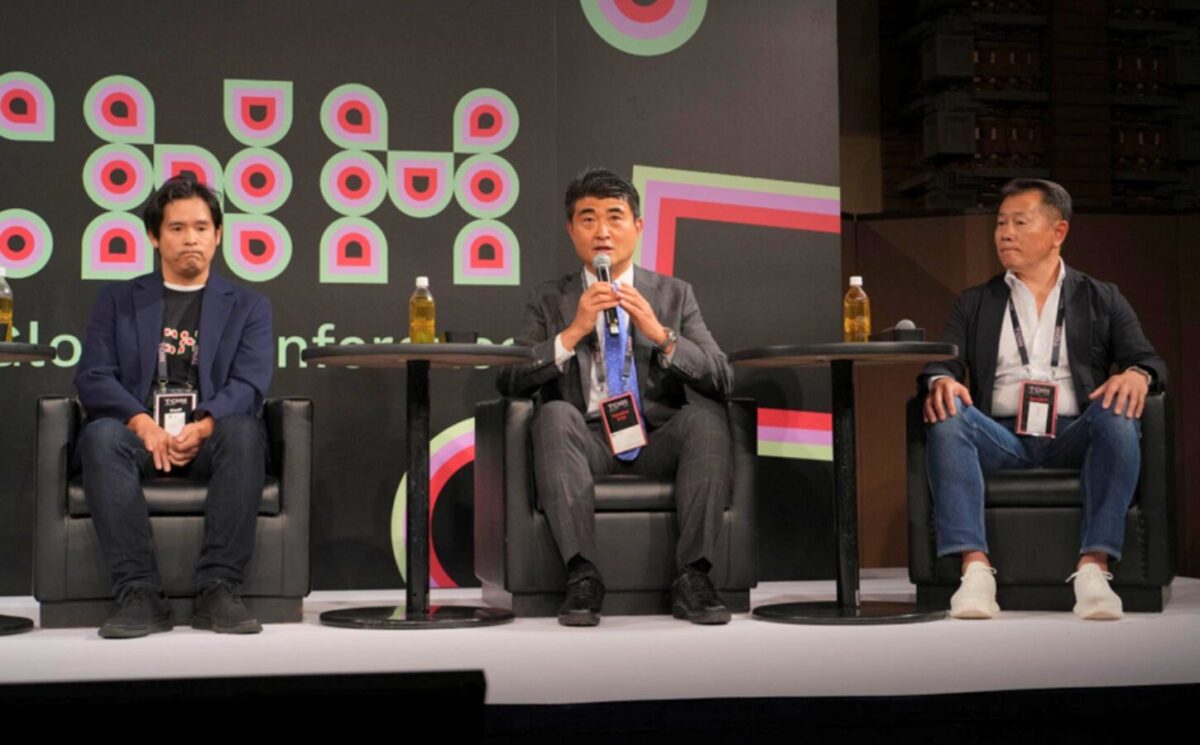
Ito, who began his career as a venture capitalist at JAFCO, said “there was not enough support for university-launched ventures back then.” He talked about times when deep-tech startups were not considered profitable in Japan, although the country had some great researchers.
It was rare for private sectors to lend much support to university ventures and there were only few who would take the executive title at such ventures.
That awareness led him to found Beyond Next Ventures, where he built a framework to transform dormant technologies within universities into viable businesses. Ito urged participants to grow the next generation of researchers in Japan.
During the session, alongside the challenges, success stories were also shared.
“We’ve started to see cases that make a real social impact, like the space startup ispace or startups related to semiconductors,” noted Goji. He added, “I believe what really influences people are role models,” suggesting that a virtuous cycle is now in motion where new challengers will emerge.
Goji also called Japanese researchers and VCs to collaborate with their counterparts abroad to have more reach.
Deep tech companies that make an impact on society also bring change to investors. Akaura said, “Since I was part of the internet transformation era, I started with those (IT-related) companies. However, after my encounter with ispace in 2014, I’ve been deeply involved in the space industry.”
Ito stated, “In the past ten years, we’ve seen successful examples. Now, it’s time to create university-launched ventures that can become unicorns.”
“Potential entrepreneurial talent is present even at this conference. We need to create more opportunities to showcase promising deep tech seeds to these people,” he added further.
But it’s not just about institutional frameworks. The next stage will demand a stronger integration of funding, talent networks, and societal connections.
Akaura and Goji also emphasized the importance of leveraging Japan’s financial resources and aligning with national policy.
Toward the end of the session, moderator Okuda summarized, “The key message today is to conduct solid, meaningful research. If that research resonates globally, we are now in an era where Japan’s startup ecosystem can support it.”
She concluded, “Japan still has a vast pool of untapped capital. It’s vital that we actively communicate and showcase the potential of Japanese deep tech to the world.”
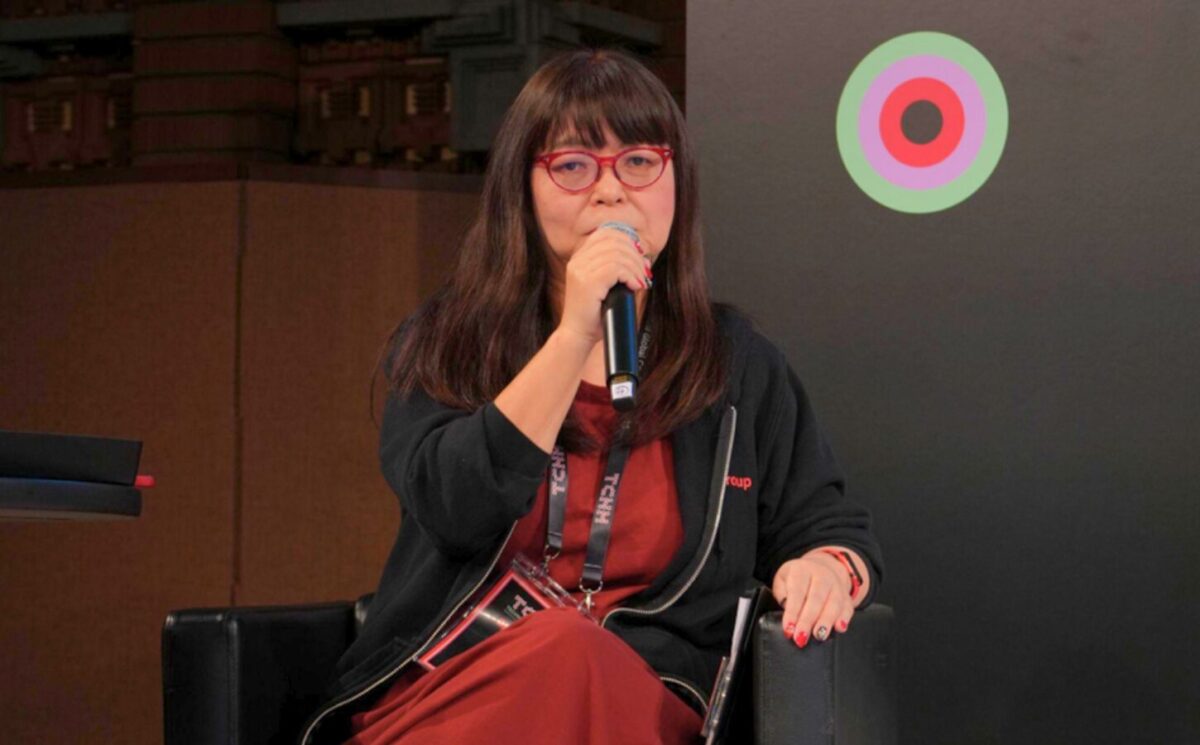
Deep tech is no longer just the realm of idealists. Anyone engaged in research can now take on the role of a challenger, and an ecosystem that supports these efforts is undeniably beginning to take shape. It was a session that powerfully conveyed that sense of momentum.
About 2,000 people participated in Japan’s first deep-tech conference named Technium, held on May 7 and 8 in Tokyo. Over 500 presentations featuring cutting-edge technologies and research seeds were conducted, while numerous sessions on medicine, drug discovery, biotechnology, climate tech, space, and AI were held.
We provided networking opportunities where researchers, startups, investors, and corporations could gather and interact. The number of meetings held at the matching booths reached as many as 1,000.
TECHNIUM Global Conference official website: https://tcnm-gc.com/#EN

